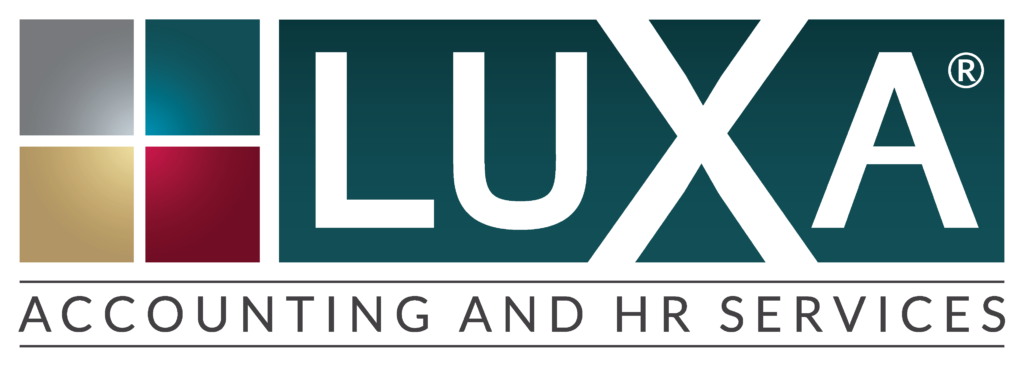One of the most important components for your business to be successful is creating, and following, a budget. This can be a daunting feat if unprepared, especially for new business owners. Learning finance terminology and gathering the correct financial information can take up most of your time, especially if you’re working alone.
No worries! We have a few things that will help you make the most of your budgeting attempts.
In this blog post, we discuss a few important steps to keep in mind while budgeting for business.
REQUEST ONLINE PRESENTATION
We’ll demonstrate how you can save money while improving your efficiency and accuracy when you outsource your back office services to TEAM LUXA.
Let Us Present A Plan →

First, what is a budget and why do you need one? Simply put, a budget can be considered as a guide when it comes to your business expenses, profits and cashflow. Rather than despising your budget, consider it a helpful business tool necessary for growth and sustainability.
Whether your business is booming or struggling to make a profit, a detailed budget is an invaluable asset. An educated and well-planned budget will allow you to make wise financial decisions for the weeks, months and years ahead.
Set a Time Frame
Determining a time frame for your budget should always come first. Will you budget for a week, month, or maybe a year? After deciding on a timeline, you can later transition this into smaller or larger budgets for the month, or for the years ahead.
Determine Total Profit
Next, you should determine your total revenue. This would include all the profits your company brings in during the timeline you’re budgeting for. While you may not know exactly how much your business will make in the coming year, you can observe last year’s profits and examine the current economic situation for your industry. This will aid in making an educated estimate for this year’s profits.
Separate Expenses by Category
Your business costs should fall into separate categories, depending on the nature of the expense. Categorizing your expenses will help determine which should be paid first, and in times of need, which expenses may be cut first. Expenses can be listed in the following categories:
- One-time
- Ongoing
- Essential
- Optional
- Fixed
- Variable
As a safe budgeting tactic, your essential expenses should be accounted for and taken care of before anything else. This may include costs such as rent, utilities, and employee payroll.
Subtract Fixed Costs
After categorizing your expenses, you should then identify and add your fixed costs. Take note of the expenses that will be constant during your timeline and include this in your budget.
Determine Variable Expenses
Variable expenses include those that will not remain constant during your timeline. It’s important to include these in your budget. Looking back on past variable expenses will aid in making an educated estimate for your future variable costs. Keep in mind, it’s always better to overestimate your expenses than to underestimate when it comes to variable costs. As the months progress, you can always go back and edit your budget for a more accurate reading.
Budget your Emergency Fund!
Budgeting for emergency circumstances will help your business avoid the pitfalls of life. Emergencies tend to happen at the most inconvenient times, especially when you own a business. You never know when you’ll need to quickly replace a piece of equipment for production. Budgeting for the unknown helps avoid many of the emergencies that may pop up in the future.
Outline your Budget (on paper)
Whether you use Excel, or a template found online, creating a physical, or digital, document will help you and your team stay on track. After establishing the core of your budget, it will be easier for you to go back and edit or add, as you see fit. Sharing your finished budget with your team will also be beneficial in keeping everyone on the same page and on track toward a successful year.
While we can give you tips and tricks to make things easier, creating a budget looks different for everyone. Depending on your business, industry, and other unseen factors, you will need to adjust your budgeting technique to fit your needs at the time, making the budget as detailed or as general as you like.
Do you still need help effectively budgeting for optimal business growth? Our experienced team of professionals can help you with that! Contact us today for a full list of resources and services we offer.
We Can Help
Do you need help prioritizing your business’s growth? Check out the resources our team has to offer. With over 75 years of both accounting and human resource experience, we act as a business partner, assisting with many of your back-office and administrative needs.
Budget-Friendly Outsourcing Solutions
At LUXA, we are passionate to provide budget-friendly outsourcing solutions that can help businesses save money. We specialize in a variety of services, including accounting, bookkeeping, HR, and payroll.
We understand that every business is different, and we will work with you to create a customized solution that meets your specific needs. Contact us today to learn more about how we can help your business save money through outsourcing.
LUXA Enterprises specializes in HR services, outsource accounting, bookkeeping, and payroll services. We match up with ideal candidates for services by allowing small to midsize businesses to increase focus on their growth through outsourcing. If you want to know how we can help you, contact us today!
REQUEST ONLINE PRESENTATION
We’ll demonstrate how you can save money while improving your efficiency and accuracy when you outsource your back office services to TEAM LUXA.
Let Us Present A Plan →

Call TEAM LUXA today at (918) 928-7288 to learn more about why outsourcing is right for you!

